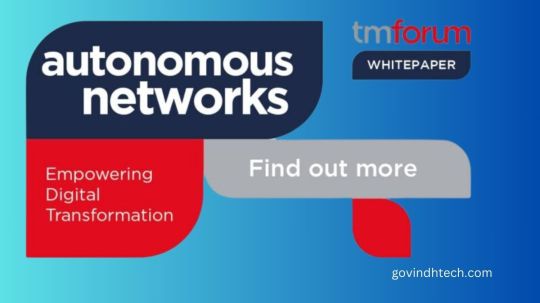#IoTdevice
Explore tagged Tumblr posts
Text
Polludrone
Polludrone is a Continuous Ambient Air Quality Monitoring System (CAAQMS). It is capable of monitoring various environmental parameters related to Air Quality, Noise, Odour, Meteorology, and Radiation. Polludrone measures the particulate matter and gaseous concentrations in the ambient air in real-time. Using external probes, it can also monitor other auxiliary parameters like traffic, disaster, and weather. Polludrone is an ideal choice for real-time monitoring applications such as Industries, Smart Cities, Airports, Construction, Seaports, Campuses, Schools, Highways, Tunnels, and Roadside monitoring. It is the perfect ambient air quality monitoring system to understand a premise's environmental health.
Product Features:
Patented Technology: Utilizes innovative e-breathing technology for higher data accuracy.
Retrofit Design: Plug-and-play design for ease of implementation.
Compact: Lightweight and compact system that can be easily installed on poles or walls.
Internal Storage: Internal data storage capacity of up to 8 GB or 90 days of data.
On-device Calibration: On-site device calibration capability using built-in calibration software.
Identity and Configuration: Geo-tagging for accurate location (latitude and longitude) of the device.
Tamper-Proof: IP 66 grade certified secure system to avoid tampering, malfunction, or sabotage.
Over-the-Air Update: Automatically upgradeable from a central server without the need for an onsite visit.
Network Agnostic: Supports a wide range of connectivity options, including GSM, GPRS, Wi-Fi, LoRa, NBIoT, Ethernet, Modbus, Relay, and Satellite.
Real-Time Data: Continuous monitoring with real-time data transfer at configurable intervals.
Weather Resistant: Durable IP 66 enclosure designed to withstand extreme weather conditions.
Fully Solar Powered: 100% solar-powered system, ideal for off-grid locations.
Key Benefits:
Robust and Rugged: Designed with a durable enclosure to withstand extreme climatic conditions.
Secure Cloud Platform: A secure platform for visualizing and analyzing data, with easy API integration for immediate action.
Accurate Data: Provides real-time, accurate readings to detect concentrations in ambient air.
Easy to Install: Effortless installation with versatile mounting options.
Polludrone Usecases:
Industrial Fenceline: Monitoring pollution at the industry fenceline ensures compliance with policies and safety regulations, and helps monitor air quality levels.
Smart City and Campuses: Pollution monitoring in smart cities and campuses provides authorities with actionable insights for pollution control and enhances citizen welfare.
Roads, Highways, and Tunnels: Pollution monitoring in roads and tunnels supports the creation of mitigation action plans to control vehicular emissions.
Airports: Pollution and noise monitoring at taxiways and hangars helps analyze the impact on travelers and surrounding neighborhoods. Visit www.technovalue.in for more info.

#AirQualityMonitoring#CAAQMS#EnvironmentalMonitoring#SmartCitySolutions#RealTimeData#PollutionControl#IoTDevice
2 notes
·
View notes
Text
IoT Devices: Smarter Connectivity!
IoT devices are reshaping industries with real-time data, automation, and AI-driven insights. From smart homes to industrial automation, these devices enhance efficiency and connectivity. With 5G & edge computing, the future of IoT is faster, smarter, and more secure! 🚀
#IoTDevice#SmartTech#5GIoT#ConnectedFuture#AIoT#Innovation#iotnbo#iot platform#iot#web development#iot applications#iot development services#iotsolutions#bluetooth#software development
1 note
·
View note
Text
Several features of React say to choose React.js for IoT. Let's see too special about React.js which makes it a smart choice for IoT projects.
#React#ethics first#habilelabs#reacthooks#reactfunction#reactjs#reactnative#IoT#IoTdevice#IoTapplication
0 notes
Photo

#Situational #awareness drives open #IoT #Ecosystems not #visual #interfaces The foundation for this thinking goes back to; The Social Life of Things, Commodities in Cultural Perspective by Arjun Appadurai 1988 If things #AgileWorldInc #AgileTransformation #AgileFinOps #LeanPortfolioManagement https://agile-world.us/situational-awareness-drives-the-iot-interactive-landscape-not-visual-interfaces/?utm_source=tumblr&utm_medium=%23AgileWorld&utm_campaign=%23AgileWorld
#karlsmithuserexperienceu#agilehumans#AgileWorld#AgileWorldUSA#hiddensystems#IoT#IoTdevice#IoThuman#IoTservice#Situationalawareness#ubidevice#ubihuman#ubiservice#Ubiquity
0 notes
Text
This Fuel Cell Lasts Forever and is Powered by Dirt!

Remove the need for expensive solar panels and a long trip around a 100-acre farm swapping out batteries and you make this a lot more accessible. Read More. https://www.sify.com/clean-tech/this-fuel-cell-lasts-forever-and-is-powered-by-dirt/
0 notes
Text
Harnessing AI for Autonomous Network Operations

Autonomous network system
Technologies like 5G, IoT, cloud computing, and AI are revitalizing the telecommunications sector, which is vital to global connectivity. Consequently, networks have gotten harder to maintain. Automation is required to manage repetitive tasks, keep an eye on the health of the network, and react quickly to problems. But the communication service providers’ (CSPs’) current skill sets might not match the changing needs of this changing environment.
CSPs need adaptable teams to thrive in the modern era: software developers for automation through vendor application programming interfaces (API), data scientists for data interpretation and operations, and service assurance engineers for creating closed loops to guarantee service reliability.
By assembling teams with a variety of backgrounds, Communication Service Providers not only close the gap but also gain from noteworthy developments in a related field. With the advent of generative AI, programming languages have progressed toward low-code/no-code paradigms. Today, foundational models are able to produce formal code from natural language descriptions of tasks. The notion of intent-based networking (IBN) gained a fresh viewpoint as a result.
In intent based networking, human administrators articulate high-level network goals using natural language, or “intents,” and their intentions are automatically converted into network configurations and policies. In addition to potentially changing the game in terms of closing the talent gap within telcos, intent based networking has the ability to enhance network management. Furthermore, as network conditions change, autonomous networks (AN) claim to be able to use intents as inputs to automatically self-configure, self-optimize, and self-heal networks.
Even though both intent based networking and Autonomous Network have bright futures ahead of them, ongoing questions remain regarding their viability and program applications, including intent expression, precise translation into network configuration, system complexity, transparency, and other issues. In this blog, we explore the domains in which their real-world implementation has the potential and examine the obstacles that might arise.
An example of motivation: launching new services with no intention of
In order to comprehend the necessity of optimizing communication between CSP teams and the network, let’s examine the example of a new service deployment.
It is assumed that the Communication Service Providers network operates automatically in accordance with the guidelines provided in the TMF Introductory Guide 1230 (IG1230) on the Technical Architecture of Autonomous Networks. Within that framework, the CSP’s OSS consists of the following:
(1) An orchestrator for automated provisioning, testing, and service provisioning.
(2) An assurance system with network inventory that gathers information, generates insights about the state of the network, and thus enables data-driven decision making within the framework of closed-loop control.
(3) A policy manager that directs network behavior based on predefined policies, guaranteeing compliance with the wider Communication Service Providers policies.
To put it briefly, automated operations involve tightly coupling services with the TOSCA service descriptors, configurations, policies, and imperative workflows that are assigned to them by humans. During the design phase, service designers add intelligence and decision-making to these workflows. Zero-touch experience is achieved as long as future conditions have been anticipated and policies have been put in place to handle them. Service designers must proactively anticipate a wide range of conditions that may arise in the network and provide detailed instructions on how they must be addressed.
For the various stages of the service lifecycle-service design, service instantiation, and service assurance, respectively-IBM refer to them as Day 0, Day 1, and Day 2.
The creation of diverse service assets is included in service design, as shown in Figure 1. The service design team is responsible for this; they must create the necessary workflows and scripts and comprehend the Day 1 and Day 2 operations of the service. Figure 2’s red lines show how a new service is provisioned, making it possible for orders to be placed for the service.
After a subscriber requests a service, the service is instantiated when the service order is received. The service order manager (SOM) normally sends the service order to Communication Service Providers these days via the TMF 641 interface. Upon receipt of the service order, the service orchestrator guarantees the execution of the workflows and the deployment and operation of the requested monitoring configurations, PM/FM models, and policies. In Figure 2, the service instantiation is displayed using green lines.
The closed-loop methodology of service assurance involves automated lifecycle actions and constant monitoring of deployed services’ conditions. In Figure 2, the assurance closed loop is displayed using blue lines.
To sum up, a significant amount of manual labor is required during the design phase because the network needs to be provided with instructions for the new service.
What do intentions mean?
The term “intents” in intent based networking refers to the broad goals that Communication Service Providers hopes to accomplish within its network. As previously mentioned, the engineering teams express the objectives with intents, and the logic underlying the intents translates them into the necessary network configuration that fulfills the intent objective. This eliminates the need for the engineering teams to deal with intricate low-level network configurations during Day 0 operations.
After the configurations are applied to the network, the Autonomous Network keeps an eye on the services that have been deployed and modifies the configuration as needed to keep the operation in line with the intended goals. The use of intents is expanded into Day 2 operations by the Autonomous Network .
Views from Autonomous Network and Intent Based Networking
Next, IBM list a few areas where intents might potentially transform pre-intent established practices into revolutionary ones:
Day 0 Operations: Setting up new services – Use generative AI to process natural language input and add requirements on its own.
Launch of fresh services Use natural language to describe new services, e.g., “offer a tailored connectivity solution for secure communication within healthcare institutions” or “enable IoT device communication across smart city infrastructure.” Then, use generative AI to generate the required service assets automatically.
Automated creation of resource drivers tailored to individual vendors Based on vendor documentation, use generative AI to create resource drivers unique to each vendor.
Day 1 Operations: Streamlining the service order process so that users can make requests in plain English. A unique service ordering experience, like mixing and matching products from the catalog, is made possible by this user-friendly approach.
Feasibility checks: These efficiently evaluate important factors, such as the availability of fiber optic lines, and expedite validation checks as customers express their intents. As a result, network engineers have less work to do, services are validated more quickly, and deployment is more responsive and agile.
Day 2 Operations: Dynamic service assurance allows networks to adapt to changing circumstances and user demands with intelligence. Intent-based policies that are flexible improve agility and guarantee the responsiveness and dependability of network services in real time.
The difficulties with Autonomous Network and intent based networking
There are two primary issues that need to be resolved:
How do you communicate and express intent?
What does the intent handler look like and how can I execute on an intent?
The TMF921 Intent-based Networking API was unveiled by TM Forum and provides a structured framework for specifying high-level network intents.
The intent is defined by TM Forum as follows:
“A technical system’s intent is the formal specification of all expectations, including requirements, goals, and constraints.” To fully utilize the intent concept, network engineers would need to become familiar with this formal language, which is why the part formal specification raises concerns. Furthermore, formal specifications do not always result in fewer parameters needing to be supplied with them. This feature calls into question the expected simplification of network administration that is commonly associated with intent based networking.
Moreover, the intent handler-the central part of intent based networking that contains the reasoning for intent interpretation-becomes nothing more than a deterministic interpreter of the intent formal language as a result of formalizing the intent specification. The issue is how to transform the intent handler into a declarative, autonomous system so that people don’t have to predict every possible network situation and give detailed instructions on how to fix it. If not, the automated to autonomous system operation transition cannot be accomplished.
Read more on Govindhtech.com
#AI#AutonomousNetworkOperations#Autonomousnetworksystem#IBN#IBM#generativeAI#IoTdevice#networkintents#TMForum#technews#technology#govindhtech
0 notes
Text
Atmosic And AONDevices Announce Strategic Partnership To Leverage Both The Benefits of AI And Energy Harvesting To Lower Power Consumption In AIoT Smart Home Devices

With the strategic alliance that it has formed with AONDevices, Atmosic Technologies will leverage low-power AI processors and ultra-low-power wireless technologies to create wearable and AIoT (Artificial Intelligence of Things) applications that are cutting edge. The ATM Series from Atmosic, renowned for its exceptionally low-power wireless System on Chip (SoC), will combine with the AON series of AI processors from AONDevices to deliver precise voice command recognition, sound awareness, and contextual awareness while consuming the least amount of energy possible. By utilizing energy-efficient solutions to lessen reliance on batteries and further minimizing power use with AONDevices' AI technology, this partnership is in line with Atmosic's commitment to IoT sustainability. Headsets, wearables, game controllers, toys, cars, smart home appliances, smart buildings, and industrial IoT applications are among the many applications that the cooperation aims to address.
The ATM Series wireless SoC from Atmosic combines 802.15.4 protocols, energy harvesting, power management, and RF radios that support Bluetooth Low Energy. The AI processors from AONDevices feature multi-sensor fusion, sound awareness, and voice command recognition with high accuracy under a variety of scenarios. With adaptive speech activity detection, the technology supports speaker independence in always-on and multi-word detection scenarios while assisting with voice control and context detection.
By lowering RF radio power usage and using harvested energy to power sensors, tags, remotes, and other devices, Atmosic has been a pioneer in the IoT sustainability space. By using less batteries and lessening their influence on the environment, this strategy enables manufacturers to produce goods that are friendly to the environment. Through the relationship with AONDevices, power consumption will be further reduced by addressing energy waste during sensor false detections.
Read More - bit.ly/48qeBvz
0 notes
Text

Festival of Lights… A 'USB Stick' Sparkle Motion WLED driver ✨💡🔌🌟
To wrap up this year, we're doing 8 days (maybe!) of light-filled designs. We started with the Sparkle Motion Mini
which can drive thousands of shimmering RGB LEDs. Next, we were going through some of our NeoPixel samples today and found some "LED Christmas light kit" with star LEDs, its basically these stars
with a little USB plug that has IR, a crummy mic, a tactile switch to cycle modes manually, and a tiny microcontroller that turns the LED selections to different patterns - kinda like this:
The idea is cute - but the implementation could be improved with a lil sparkle motion
! we made a PCB that would fit into the same plastic enclosure but with an ESP32 instead. it's got an IR receiver, ICS-43434 I2S digital microphone
https://www.digikey.com/short/mmv3tthz
gpio 0 button in the 'right' place, 5V 2A fuse, USB-serial converter for uploading/debugging, and two level-shifted outputs. We can probably get the case in quantity or have this be a 'DIY replacement' that folks can use to make their existing setups WLED/xLights friendly.
#festivaloflights#wled#sparklemotion#esp32#neopixels#rgbleds#leddesigns#lightshow#diyleds#holidaylights#electronicsprojects#ledart#usbdriver#techinnovation#custompcb#openhardware#makersmovement#adafruit#holidaydecor#smartlighting#iotdevices#ledengineering#lightdesign#sparklingstars#electronicsmaker#esp32projects#holidaydiy#lightdisplay#lightingideas#techdiy
49 notes
·
View notes
Text
#•#IoTDevices#SmartTechnology#InternetOfThings#ConnectedDevices#TechGuide#SmartHome#IoTInnovation#FutureTech#Gadgets#TechTrends
2 notes
·
View notes
Text

🌟 Exciting News from Opulance Technologies! 🌟
Introducing our latest invention: the Advanced Automated Weather Station. This cutting-edge technology delivers real-time, accurate weather data to help you stay ahead of the elements. Perfect for meteorologists, farmers, and weather enthusiasts alike. Discover the future of weather monitoring with Opulance Technologies! 🌦️🔬 #OpulanceTech #WeatherStation #Innovation #RealTimeData #WeatherMonitoring
#iot development services#iot platform#iot tech#iotinnovation#iot in agriculture#robotics#tech#lgbt#iotdevices
2 notes
·
View notes
Text

#iot#iot applications#iot development services#iot technology#iot app development#iot hardware security#iotdevices#iot development company#iotecosystem#iotsolutions
2 notes
·
View notes
Text
Using the Internet of Things (IoT) in manufacturing has totally changed how stuff gets done, making it way better. It’s like giving factories a major upgrade! This technology has made factories run quicker, smarter, and safer. In this article, we’ll chat about why IoT is so cool and how it’s making manufacturing awesome.
2 notes
·
View notes
Text
Unlocking the Power of IoT Devices
IoT devices are transforming industries, from smart homes to healthcare and industrial automation. These connected devices enable real-time data exchange, making operations more efficient and intelligent. With advancements in AI and edge computing, IoT is evolving rapidly, offering smarter automation and predictive analytics.
🔹 What's Next? The rise of 5G-powered IoT will revolutionize connectivity, ensuring faster data transmission and improved device communication. Industries will experience enhanced remote monitoring, better security, and real-time decision-making like never before!
🚀 Stay ahead with the latest IoT innovations!
#IoTDevice#SmartTech#5GIoT#ConnectedFuture#TechInnovation#IndustrialIoT#iotsolutions#iot applications#iotnbo#bluetooth#software development#innovation#iot#iot platform#iot development services#web development
1 note
·
View note
Text

In this blog, will see how IoT & wearables are changing the business for Fintech. Let us first understand the basic terms IoT, Wearables and Fin-tech in brief.
#habilelabs#ethics first#fintech#fintechindustry#fintechtechnology#fintechpolicy#iot#iotdevice#iottools
0 notes
Photo

#Situational #awareness drives open #IoT #Ecosystems not #visual #interfaces The foundation for this thinking goes back to; The Social Life of Things, Commodities in Cultural Perspective by Arjun Appadurai 1988 If things #AgileWorldInc #AgileTransformation #AgileFinOps #LeanPortfolioManagement https://agile-world.us/situational-awareness-drives-the-iot-interactive-landscape-not-visual-interfaces/?utm_source=tumblr&utm_medium=%23AgileWorld&utm_campaign=%23AgileWorld
#karlsmithuserexperienceu#agilehumans#AgileWorld#AgileWorldUSA#hiddensystems#IoT#IoTdevice#IoThuman#IoTservice#Situationalawareness#ubidevice#ubihuman#ubiservice#Ubiquity
0 notes
Text
Introducing the AQ20: The Future of Automotive Connectivity
We're excited to spotlight the AQ20, Cavli Wireless's first Made-in-India automotive-grade IoT module. Designed to meet IATF 16949:2016 standards, it ensures reliability and performance in the automotive sector.
Key Features:
📡 LTE Cat 4 Connectivity: Supports peak download speeds of 150 Mbps and upload speeds of 50 Mbps, ensuring fast and reliable data transfer.
🛰️ In-Built GNSS: Equipped with Qualcomm® IZat™ location technology Gen8C Lite, providing precise positioning with support for GPS, GLONASS, BeiDou, Galileo, and QZSS.
📞 VoLTE & SMS Support: Enables high-quality voice communication over LTE networks and supports messaging capabilities like SMS over IMS, SG, and CS.
🔄 2G Fallback: Ensures connectivity in areas with limited LTE coverage by supporting 2G fallback.
🔌 USB 2.0 Interface: Facilitates easy integration with other devices and systems.
🛠️ Yocto Linux Support: Offers a customizable and open-source platform for developers to build and deploy applications.
Applications:
The AQ20 is ideal for various automotive applications, including:
🚙 Telematics: Real-time vehicle tracking and diagnostics.
📍 Navigation Systems: Enhanced GPS navigation with real-time updates.
📡 Fleet Management: Efficient management of vehicle fleets with real-time data.
🔋 EV Charging Stations: Monitoring and management of electric vehicle charging infrastructure.
With its robust features and applications, the AQ20 is set to revolutionize automotive connectivity.
#industrial iot#iot applications#iotconnectivity#iotdevices#iot development company#iot development services#iot platform
1 note
·
View note